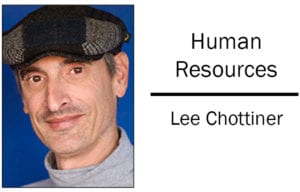 At the risk of overloading those of you still recovering from the High Holy Days, I want to talk about – Passover.
At the risk of overloading those of you still recovering from the High Holy Days, I want to talk about – Passover.
Don’t turn that page, and don’t let your eyes glaze over. Stay with me.
This coming year, Passover shares an important distinction for Jews. It falls at the same time as Earth Day 2019, April 22, the third day of Pesach.
If ever Earth Day shared a symmetry with a religious holiday, that holiday is surely Passover. You may not think so. After all, what does a festival of freedom have to do with preserving a planet?
Answer: plagues.
Among the 10 plagues that befell Egypt before Pharaoh relented and told Moses to take his people and scram were water turned to blood (killing fish), insect infestation (eating crops), fiery hail (risking safety), death of cattle (no more meat) and darkness (specter of death).
The world, as the Egyptians knew it, had changed, threatening not only their way of life, but life itself.
Not unlike climate change.
According to the much-maligned report (in Washington) from United Nations Intergovernmental Panel on Climate Change, the Earth is fast approaching a breaking point. Absent any unified effort to prevent the planet’s temperature racing past 1.5 degrees Celsius above pre-industrial levels over the next 30 years, catastrophic climate change may be irreversible.
That means ever more powerful storms such as Hurricane Michael, which slammed the Florida Panhandle with 155-mile-per-hour winds, causing an estimated $8 billion in damage. As of this writing, 18 lives were lost.
According to NASA, which tracks climate conditions around the globe, it also means temperatures will continue to rise (think it was hot this summer?); rainfall will steadily increase in some parts of the world, causing severe flooding, while drought and heatwaves will grip others.
The sea level, which has risen 8 inches since record keeping began in 1880, will accelerate by 1 to 4 feet by 2100, stoked by the melting of the polar icecaps. Think what happens when you pour a gallon of water into a half-gallon jug, then think about the people living along the Florida coast.
All these changing conditions will affect our health, food supply and energy bills. Storms, flood and fire damage will extract ever higher tolls from public and private budgets.
Expect a climate-induced refugee crisis that will make our southern border issues look like nothing. Several Pacific island nations are already in danger of envelopment.
These are modern-day plagues, and we are all Egypt.
So how do we liberate ourselves?
The Coalition on the Environment and Jewish Life (COEJL), an organization dedicated to strengthening the Jewish world’s commitment to protect the planet, is embracing the intersection of these two holidays. At its website, coejl.org/issues/climate-change/ in partnership with online Jewish resources Aytzim and Jewcology, it is providing appropriate readings for the seder and it is offering tips for households to have a “sustainable Passover.”
All well and good, but more must be done locally. Jewish Louisville ought to come together to celebrate Passover and Earth Day as a major community happening – involving all synagogues and agencies. It would make Passover a time of recalling, not just our liberation from Egypt, but our dedication to the planet’s future.
Such an undertaking involves brainstorming, which takes time (hence a Passover column in October). Hopefully, the community will run with the idea.
By itself, a community-wide celebration of Passover and Earth Day won’t cool the planet; it won’t refreeze the ice caps and it won’t stop extreme weather, but it will send a strong message to those in power who still say, for political reasons, that climate change is a hoax, putting our children’s future at risk.
As Jews, dedicated to tikkun olam, we should find that unacceptable.
(Lee Chottiner is editor of the Jewish Louisville Community.)


